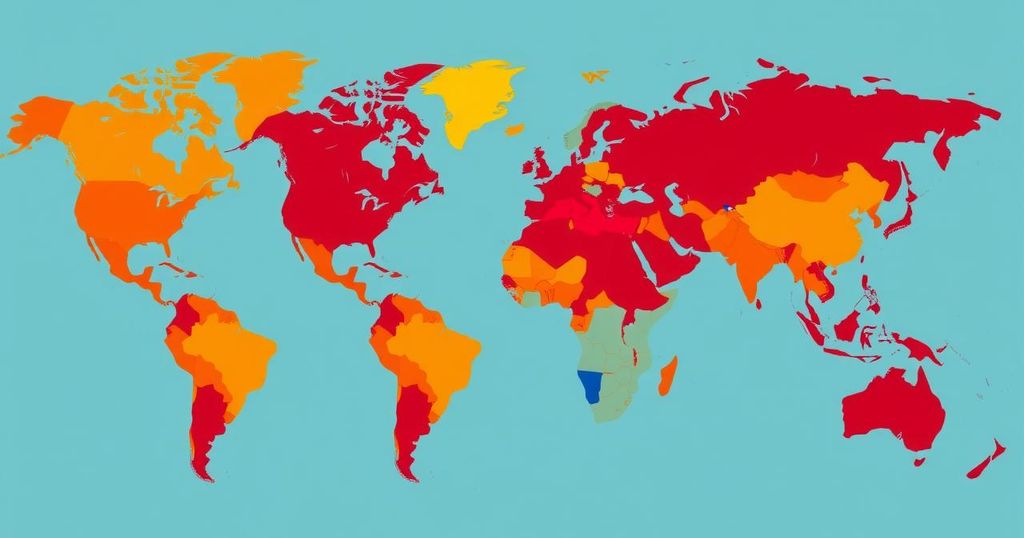The U.S. Department of State has added South Sudan to its “Do Not Travel” list due to heightened violence and instability, which negatively impacts the country’s struggling tourism sector. This advisory signifies broader global security concerns affecting travel to numerous regions, resulting in a critical need for reassessment among businesses and travelers.
The United States Department of State has recently included South Sudan on its high-risk “Do Not Travel” list, joining countries such as Yemen, Venezuela, Russia, Libya, Ukraine, the Central African Republic, and Haiti. This decision results from escalating violence, armed conflict, and rampant crime, rendering South Sudan an unviable travel destination and significantly impacting the global tourism landscape. As a consequence, airlines may reduce flights, travel insurance may become unavailable, and foreign investments in tourism are likely to decline.
Amid global unrest characterized by conflicts and kidnappings, travel and tourism sectors in various regions face severe disruptions. The advisory for South Sudan highlights the growing concerns over violent crime, including carjackings and armed robberies, which pose additional risks to foreign nationals. Moreover, journalists reporting in South Sudan face harassment and potential danger, further exacerbating the country’s unwelcoming environment for tourists and limiting any hope for tourism recovery.
Tour operators engaging in adventure tourism and wildlife experiences in South Sudan are expected to experience a steep decline in bookings, as the newfound advisory discourages travel. Consequently, logistical challenges will increase as airlines consider suspending operations. Businesses reliant on tourism, including hotels and transportation services, are at risk of collapse due to diminished financial viability and investment prospects.
While traditionally, aid workers, journalists, and business professionals formed the visitor base for South Sudan, the advisory’s implications render even these groups vulnerable to violence. Organizations might be compelled to withdraw their operations, further isolating South Sudan. With South Sudan now part of a broader collection of nations facing strict travel advisories, the repercussions for the tourism and business sectors are dire.
Among the other countries on the “Do Not Travel” list, Yemen is noted for its extreme dangers due to ongoing conflict and terrorism. The closure of the U.S. Embassy in Sana’a underscores the lack of support for travelers. Venezuela, grappling with high crime rates and the absence of diplomatic aid since 2019, remains an equally perilous destination. Russia’s current environment poses threats to U.S. travelers amid ongoing military conflicts, while Libya’s instability severely restricts any potential tourism.
Ukraine persists in its struggle against continuous attacks, making leisure travel nearly impossible. The Central African Republic has faced protracted conflict, making it one of Africa’s most dangerous nations, while Haiti remains embroiled in chaos, with gangs controlling major areas and travel being fraught with danger. The proliferation of countries under U.S. travel advisories underscores a broader deterioration in global security, with increasing numbers of destinations deemed high-risk for travelers.
In summary, South Sudan’s addition to the U.S. “Do Not Travel” list markedly impacts its tourism sector, signaling a troubling trend as global instability rises. Countries already facing similar restrictions highlight significant risks that hinder tourism and create adverse effects on local economies. The evolving security landscape necessitates a careful reassessment of travel plans and long-term strategies for businesses and travelers alike, emphasizing the urgent need for stability in affected regions.
Original Source: www.travelandtourworld.com




